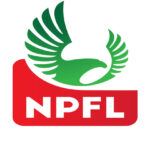In fact, at one stage, the former President used his anti-corruption crusade to intimidate his political opponents from seeking to succeed him because of his hidden agenda to continue in office beyond his constitutional term limit. The objective of the strategy was meant to show that no one else was clean except Obasanjo and therefore, for the anti-corruption crusade to be sustained, we needed him to push Nigeria forward on the road to better future.
Unfortunately, however, corruption attained the highest notorious scale under the former Obasanjo administration. Worse still, he was protecting some corrupt people while punishing others. He shocked the nation when he released the former Federal Permanent Secretary in the Ministry of Defence, Mr. Joseph Makanjuola who was facing charges of stealing N420 million. The former Permanent Secretary, who is Obasanjo’s cousin, escaped justice through a nolle prosequi (a withdrawal of interest in the case by government). As a result, Mr. Markanjuola was able to escape abroad with the active connivance of a government that was supposedly fighting corruption.
Under the cover of fighting corruption, the Abacha family was subjected to merciless harassment by Obasanjo and millions of monies allegedly stolen were recovered from them. In fact, Mohammed Abacha, one of the children of the late military ruler, was detained for several months in prison custody as a means of exerting pressure on him to admit that whatever they possessed was stolen from Nigeria. Lawyers to Mohammed Abacha rushed to the courts to enforce his fundamental human rights and ultimately secured his freedom.
Former President Obasanjo once boasted that with the kind of moral training he gave his children, they would not touch corruption with a bargepole. But subsequent realities contradicted his boastful assertion. One of his children bought a house in the United States at almost 500 thousand dollars barely a year after leaving the university.
The incident was a major public embarrassment to the former Obasanjo administration and its spin doctors told us that the first son bought the house from a mortgage facility. Contacted by curious editors and investigative reporters, the alleged mortgage company denied any knowledge of giving such loan to Obasanjo’s son. Typical of Nigerians and our short memories, the issue died a natural death because Obasanjo was in power. In fact, when former EFCC Chairman, Nuhu Ribadu was confronted about the house purchase scandal in the United States by Muyiwa Obasanjo, he unbelievably told reporters that the guy is a private citizen. In other words, the issue was outside the purview of the EFCC to investigate.
How hypocritical Obasanjo can be! Was Mohammed Abacha a public office holder when Obasanjo chose to go after him? Was Mohammed Babangida also a public office holder when EFCC detained him to explain the source of the money with which he bought shares in Globacom? Why wasn’t Obasanjo asked to explain the sources of his sudden wealth? His businesses were in utter ruin and he was facing bankruptcy until former Vice President Atiku Abubakar and Otunba Fashawe saved and rescued him with a N200 million assistance.
Again, what has become of the moral training Obasanjo gave his children? Senator Iyabo Obasanjo Bello is currently on bail after her indictment for corruption involving N10million. Her brother, Gbenga Obasanjo, has also been indicted for influence peddling over the Ajaokuta steel plant. Wasn’t Obasanjo behaving like a cat on hot bricks when he appeared on BBC’s Hard-talk with presenter, Stephen Sackur? The sore point in that interview came after Obasanjo was asked to explain how his administration and his daughter, Senator Iyabo Obasanjo could be involved in corruption when her father was an anti-corruption crusader. The former Nigerian President would have bolted out of the studio seat but was restrained by the fact that the whole world was watching the interview.
Surely, Obasanjo himself is dazzled by the sheer scale of his wealth today, a sharp contrast to his near bankruptcy status while he was in jail. It is therefore, surprising why the EFCC is not interested as yet in investigating Obasanjo, despite the detailed petition against him by the Coalition Against Corrupt Leaders (CACOL), which wants him to explain the sources of the money he used to build the Bells University at N40 billion.
It is important to fight corruption if Nigeria must ever achieve development and better life for its teeming population. This cannot however, be achieve when the war is conducted on the basis of double standard. No nation can fight corruption in a situation where some people carry a crown while others carry a cross for the same offence.
Nwachukwu wrote from B26, Gen. Jerry Useini Road, Nyanya, Abuja
 Join Daily Trust WhatsApp Community For Quick Access To News and Happenings Around You.
Join Daily Trust WhatsApp Community For Quick Access To News and Happenings Around You.



